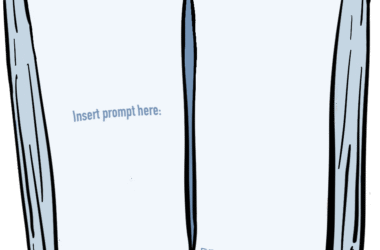“Force your foot in the door,” says Alex Grossi, and while she could be talking about any job, she is referring to television screenwriting. A lucrative and highly interesting position, screenwriting for TV has taken off in the past decade as the number of channels looking for the next “hit show” has expanded exponentially. Screenwriting is now considered a respectable major in universities across the United States and Canada. Schools such as the University of Southern California, the American Film Institute and New York University all have specialized screenwriting programs with helpful alumni networking possibilities to go along with your degree.
However, while attending a prestigious college might be one way to help “force your foot in the door,” it is not the only way. Like other types of writing, screenwriting involves years of practice and perseverance. Whether it is through winning a screenwriting competition, writing a short script that does well at a film festival or finding the perfect networking connection, succeeding in the world of screenwriting is not necessarily about an MFA in Film.
Take Alex Grossi for example. After earning her Bachelors degree in English and Italian with a minor in Film from Vassar College in Poughkeepsie, New York, Alex Grossi landed her dream job. As a former writing assistant for the HBO “gritty drama” known as /Deadwood/, Grossi has succeeded against the odds in the screenwriting industry.
“I knew the importance of contacts and made it my mission to…become acquainted with all the people I met. … One of my glamorous duties… was to camp out in front of the dining tent during lunch and count all the people who ate. … It was hot, windy and dusty, however, I was able to meet everybody who worked on the show.” It was in this position that Grossi met her boss, David Milch, who was the executive producer of /Deadwood/. Grossi kept in touch with Milch, eventually showed him samples of her writing and was given a paid internship as a writer for the show.
Not your typical 9 to 5-er, writing for a TV show involves following the patterns of the production. Grossi explains, “While the show is shooting, we write in trailers on the set. The hours are less regular since they depend on what time the shoot starts that day.” Milch lectures on where the show is going and writers take it from there. If they hit a block or run out of ideas, they are allowed to watch edits of the show or trek over to the set and watch the drama unfolding as the cameras roll. However, when the show is on a break from filming, the writers work from 9 a.m. to 5 p.m. in an office in Santa Monica.
“We all do the same job, which is write whatever scenes we feel like writing,” Grossi says of the 12 writing interns and eight senior writers on set. Milch then reads every script and fills in and rewrites as he sees necessary.
“Even though a team of writers work on every episode, only one or two writers will get credit for that episode,” Grossi adds.
Since Deadwood was cancelled by HBO after three seasons, Grossi has followed Milch to a new show called /John from Cincinatti/. Grossi describes the show as a “surf noir” that “revolve[s] around three generations of a surfing/skateboard[ing] family.
“Part of being a screenwriter is being able to adapt and learn to write in dialogue that is true to the characters,” Grossi says when asked about the differences between /Deadwood/ and /John from Cincinatti/.
Advice for interested young screenwriters: “Take any job that will allow you to network and then keep in touch with those people,” Grossi suggests. Moving to LA and keeping in touch with alumni from your school who may already work in the industry are also important options to consider. And, of course, “a good education is always helpful!” In the end, however, a combination of solid writing skills, the ability to work through failure and a little dash of luck are the key tricks to breaking into the screenwriting business.






